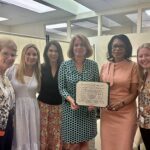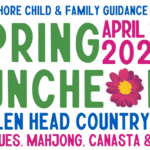By Andrew Malekoff
The church shootings of nine black parishioners in Charleston, SC, at the hands of 21-year old Dylann Roof, who has confessed to the crime, sends a sobering message to all those involved with adolescents. Although cries of “hate crime” ring out in this instance—and no doubt are true—we need to recognize that issues surrounding diversity and systemic racism are an issue for every teenager and young adult here on Long Island.
Those of us who have the privilege to work with youth in schools, community centers and other arenas face the unique challenge of helping them address diversity and racism openly and honestly. Although discussions about race during the last two presidential campaigns gave a number of people a chance to process their feelings, it doesn’t appear that we have come very far.
An open, nonjudgmental group experience can provide adolescents with a unique opportunity to explore the typically taboo areas of race and ethnicity, exposing deeply ingrained or loosely-formed beliefs and influencing their perceptions and behaviors in the world outside of the group.
When stories like the church shootings and the deaths of unarmed black citizens at the hands of the police dominate the media, young people’s tendency toward stereotyping and polarizing is too often reinforced. Within group settings, we can encourage discussion about ethnic identity, bias, prejudice and intergroup relations as a normal part of adolescent development. We can help young people to tune in to ethnically and racially-charged local, national and international events that affect them.
I vividly recall a meeting I had with a group of local teenagers in the immediate aftermath of the Columbine High School shootings in Littleton, CO. The group talked about their feelings regarding profiling and stepped-up security in schools and in the community. One group member, Carlos, recalled an incident when he was stopped by a police officer who asked to check his arms. “He was looking for gang tattoos. He thought I was MS-13,” Carlos explained as he slowly pulled his shirtsleeve back across his forearm, as if back in the moment. “I told the cop, ‘First of all, I’m Salvadorian and proud of it. Second, I’m not a gangbanger.’ ”
Carlos continued, “A week later, I saw the same cop at my restaurant job, where I work as a maître d’ and wear a tuxedo. He looked me over and seemed really confused. I smiled and said to him, ‘See, I’m the same person.’”
A healthy exchange of ideas and opinions about controversial subjects in a safe environment enables young people to test out their beliefs and attitudes, to practice listening to the views of others, to respectfully express differences and to discover common ground.
By advancing an understanding of differences, we can reach for commonalties experienced among young people across cultures to open pathways for relating among different ethnic groups.
Presently, we all face the sad possibility of seeing a dramatic erosion of empathy and loss of community as a result of the struggle for economic survival. We cannot afford to allow the development of empathy for others to slip away from our youth in the process. As adults, we must do all that we can to help young people confront the issues surrounding diversity openly, honestly and safely. Our survival and humanity depend upon it.
Andrew Malekoff is the executive director of North Shore Child & Family Guidance Center, which provides comprehensive mental health services for children from birth through 24 and their families. To find out more, visit www.northshorechildguidance.org.
Additional Information: View Website Link














